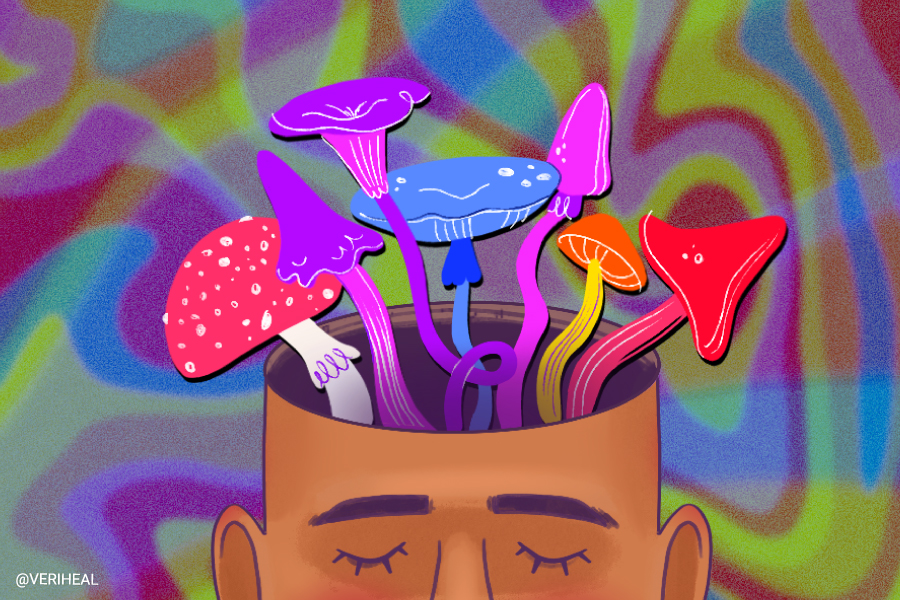Psilocybin, a psychedelic compound found in a variety of mushrooms, has long been used as a tool to mitigate depression despite the limited amount of research on its efficacy and safety. Fortunately, the increasing acceptance of cannabis has laid the groundwork for emerging interest in psilocybin and other forms of potentially effective alternative therapeutics.
Consequently, psychedelics have received a significant amount of attention for ailments that are in need of more effective solutions, such as treatment-resistant depression (TRD). Earlier this year, psilocybin was investigated as a means of assisting with TRD. Now, the largest-ever psilocybin study has confirmed that it significantly helps with it.
Exploring Psilocybin and Treatment-Resistant Depression
The study was conducted by COMPASS Pathways, a mental healthcare company that is “dedicated to accelerating patient access to evidence-based innovation in mental health.” COMPASS used their own psilocybin, called COMP360, to lead the largest randomized, controlled, double-blind study into psilocybin therapy, the results of which were shared at the American Psychiatric Association’s (APA) annual meeting in New Orleans.
233 patients with TRD from 10 countries in North America and Europe received either 1 milligram, 10 milligrams, or 25 milligrams of the COMP360 psilocybin. While 233 participants might sound low, it is still the largest number of humans to participate in a psilocybin-based clinical trial. The researchers assessed the symptoms associated with TRD using the Montgomery-Asberg Depression Rating Scale (MADRS), which is a 10-item diagnostic questionnaire that psychiatrists use to measure the severity of depressive episodes.
The participants had reportedly tried at least five antidepressant treatments that were not successful in alleviating their TRD, and 94% of them had no prior experience with psilocybin. COMPASS explains that there were 79 participants in the groups receiving 25-milligram and 1-milligram doses and 75 participants who received 10-milligram doses. The patients were supervised for 12 weeks after having been administered their dosages.
The participants received the psilocybin during one 6-8 hour-long session, during which they were supported by a trained therapist. Adverse events experienced on the day of administration included headaches, nausea, and dizziness; one participant received lorazepam for acute anxiety, which is the result of having received the high dose of 25 milligrams. As for the lower dosage groups, there were no adverse effects to report on the day of administration.
Hope for Depression Patients
The study’s main finding was that a single 25-milligram dose of COMP360 psilocybin, when combined with psychological support, was “associated with a highly statistically significant reduction in depressive symptoms after three weeks, with a rapid and durable response for up to 12 weeks.”
COMPASS summed up its findings as follows:
- Depression Symptoms: While the patients who received the 25-milligram dose did experience some mild adverse effects on the day of administration, the same group experienced a “highly statistically significant reduction in symptoms of depression after three weeks” when compared to the groups who received the 1- or 10-milligram dose.
- Durability: The researchers found that there were twice as many participants who had sustained the benefits at week 12 when compared to the 1-milligram group.
- Tolerability: Overall, COMP360 was well-tolerated, with the only adverse effects being reported on the day of administration. The adverse effects experienced on that day were also relatively mild compared to what they could have experienced after having consumed a psychedelic—such as increased blood pressure, uncoordinated movements, excessive sweating, increase in breathing rate, distorted sensory perception, etc.
- Adverse Events: This finding category refers to suicidal ideation and intentional self-injury, which were seen in all of the treatment groups. Unfortunately, there were no improvements OR worsened symptoms to report in terms of suicide and self-injury.
Dr. David J. Hellerstein, an investigator in the trial and a professor of clinical psychiatry at the Columbia University Irving Medical Center, stated:
“Treatment-resistant depression is one of the biggest challenges we face in psychiatry, and chances of success decreases with each treatment that a patient tries. It’s rare to see such positive outcomes of clinical trials in this disease area, which is why these results are so significant. I hope this represents a major step in finding new options for people living with treatment-resistant depression.”
Future Trials With COMP360 Psilocybin
COMPASS explains that COMP360 psilocybin is a synthetic version of the psychedelic compound found in magic mushrooms known as psilocybin. They have pioneered this synthetic psilocybin with their proprietary formulation, which has been designated a “breakthrough therapy” by the U.S. Food and Drug Administration (FDA) for the treatment of TRD.
Dr. Guy Goodwin, chief medical officer at COMPASS, told MedPage Today that “psilocybin therapy has long held promise for treating mental health conditions, but we didn’t know what to expect in a larger, randomized and controlled clinical trial” and that “we were very pleased by the findings.”
Goodwin and the rest of the team are currently preparing for further investigations into psilocybin for TRD in order to explore what the results would look like for an even larger number of patients. COMPASS remains focused on improving the lives of those who are suffering from mental health challenges and not finding any relief from current treatment options.
Author, Share & Comments
















